Smells like teen nostalgia 💖

March 29, 2019

Hi hi,
I don’t know about you, but I’m fairly certain that our teen selves stick around during much of our adult lives. The creators of Hulu’s “PEN15” have said they started the show because they realized how eerily adult parties could resemble high school parties. The production design team even eBayed old copies of Teen Beat to collage the early 2000’s set (!).
Angst aside, it turns out platforms like Instagram, podcasts, and newsletters have created a space for young & old millennials to wax nostalgic about our own teen years, and to better understand the media that influenced us.
For this issue, I spoke with Casey Lewis, VP of Editorial at Viacom and co-founder of Clover Letter, about her experience documenting teen magazines of yore, including ElleGirl (RIP), CosmoGirl (RIP), and Teen Vogue (RIP in *print*). Casey started @thankyouatoosa on Instagram in late 2018 and has since begun dispatching a companion newsletter on topics like bullshit self-improvement advice, flirting and the “cool girl” paradigm. The project’s name is inspired by Atoosa Rubenstein, former editor-in-chief of Seventeen between 2003 and 2006.
What was your relationship like with teen media? Email me at clippedmags@gmail.com.
Here’s to 1999!
Natalie
P.S. IT HAPPENED. The men found out about this popular form of women's media — the newsletter — and then didn't mention us. Guess that means we can keep this whole thing incognito ;)

Q&A with Casey Lewis, founder of @thankyouatoosa
What has been most surprising to you as you dig through your (hundreds-deep!) teen mag archives? The most cringe-worthy?
The most surprising thing is how much of the fashion has aged so well. Maybe it's because we're all wearing '90s-inspired clothing again. Lowrise jeans and kitten heels are both pretty questionable (even if both have attempted to make a comeback), but everything else holds up. I keep coming across outfits I dog-eared as a 16-year-old that I would wear now. I was flipping through a 2003 Teen Vogue the other day, and I'd written a note to myself on the pages: "Try mixing blues with gray." And you know what? It's not a bad tip!
Something that has aged not so well is how much magazines used to worship boys. I know it was a different time, but it's just sooooo heteronormative. What a guy thinks about your hair, what a guy thinks about your makeup, what a guy thinks about your shoes, what a guy thinks, period. I hate that I cared about those things when I was younger, and I hate that I sometimes still do.
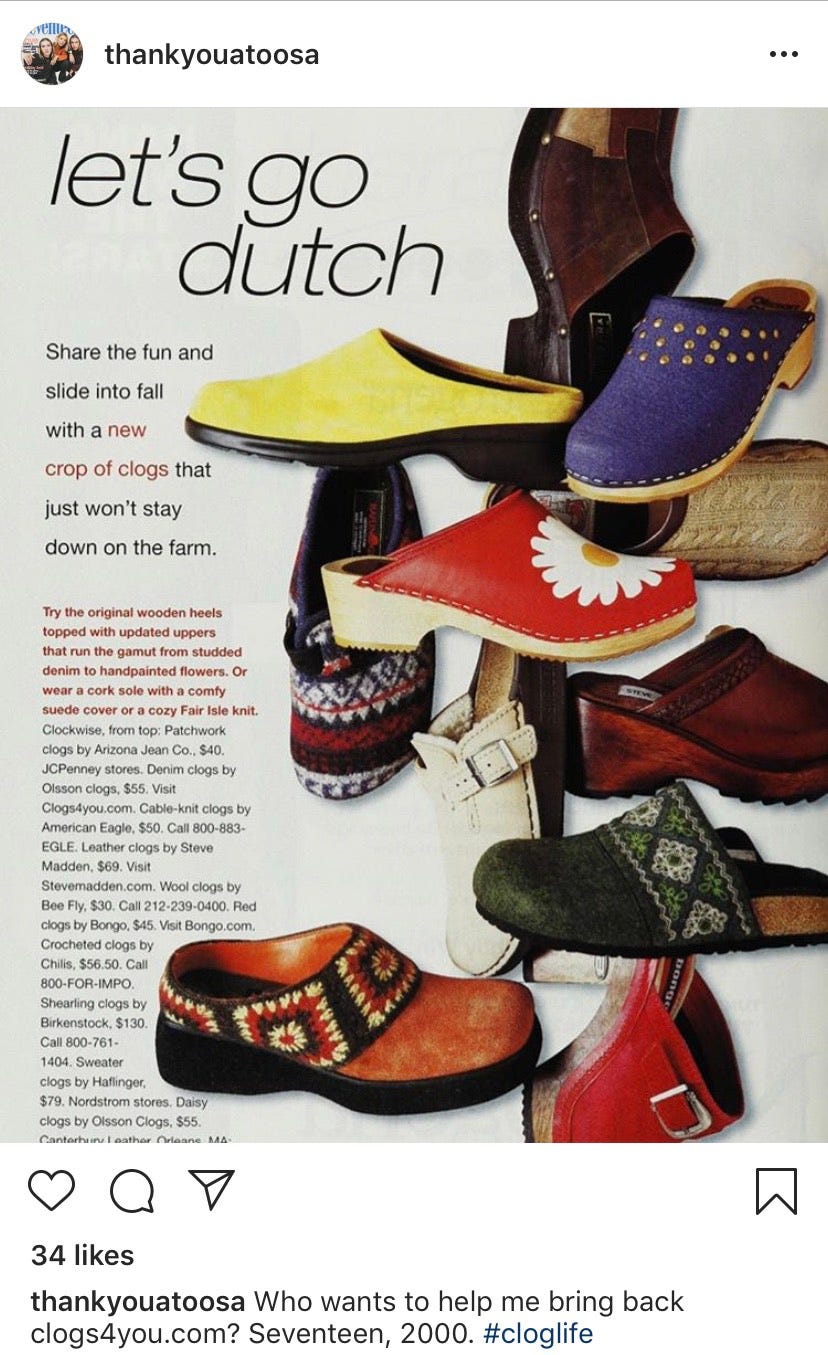
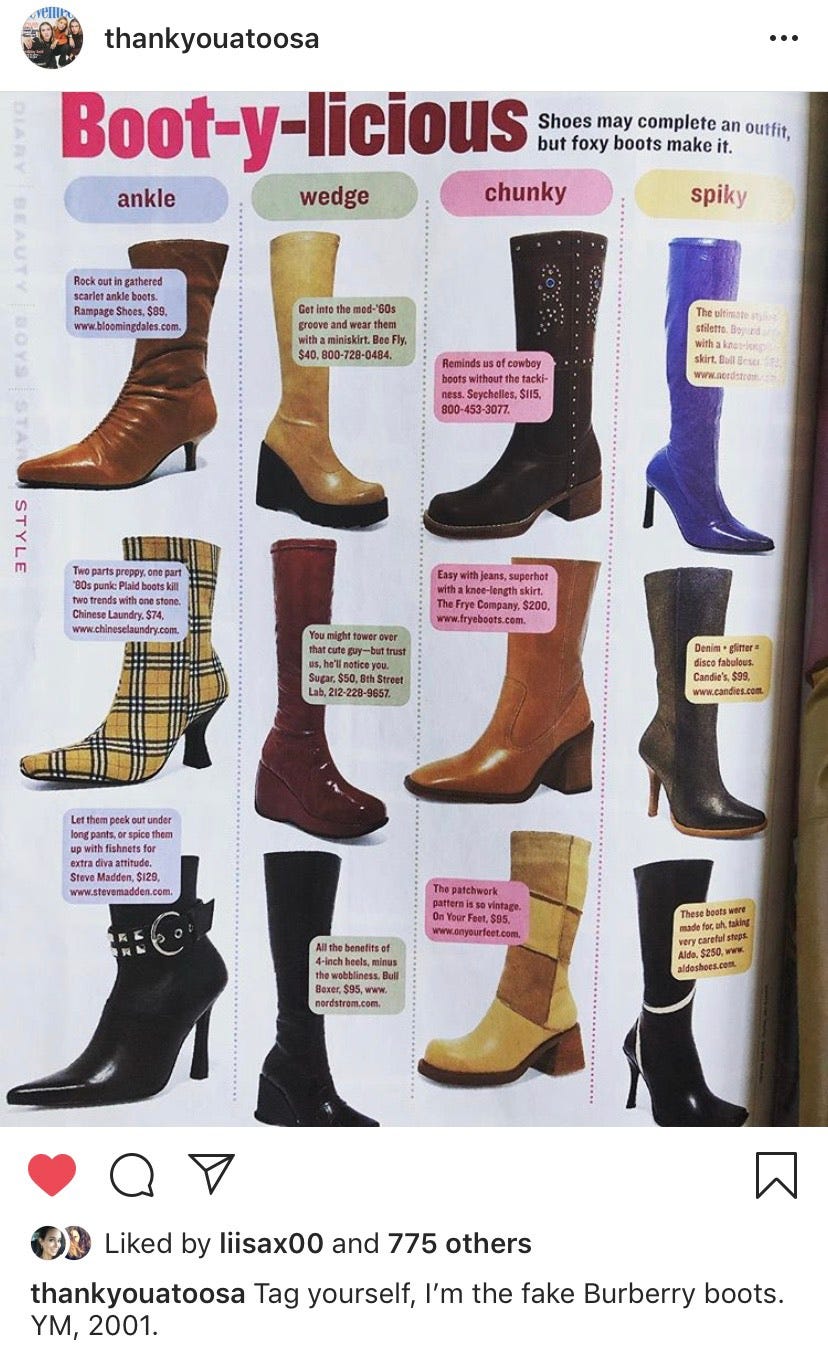
You’ve talked about how this project has made you wonder about the “deep psychological differences” between millennial and Gen X teens’ relationship to perfectionism. Can you expand on that?
I can only really speak to my own experience here, but when I was a teenager, I read magazines as if they were instruction manuals for life. I felt like if I could follow them perfectly, then I would be the best version of myself. This is obviously very twisted thinking, but when you're, like, 12, you're don't realize that. Or I didn't, at least. An example: As the school year was ending, I got an issue of Seventeen, I think, and it had an eating plan. Consume no more than two servings of dairy a day, limit your sugar to X grams, never eat white bread, etc. And I faithfully followed it all summer. It wasn't that I was trying to lose weight—I was 12!—but I was trying to be the kind of girl these magazines taught you to be. It really distorted my view on food, and planted the idea of good foods vs. bad foods, which took years to unlearn. And this is just one example of how magazines fueled my perfectionism. It's impossible to say whether today's teens are better or worse off. They're not trying to mimic fashion magazines, but they are comparing themselves to FaceTuned Insta-influencers who drink Tummy Tea for lunch.

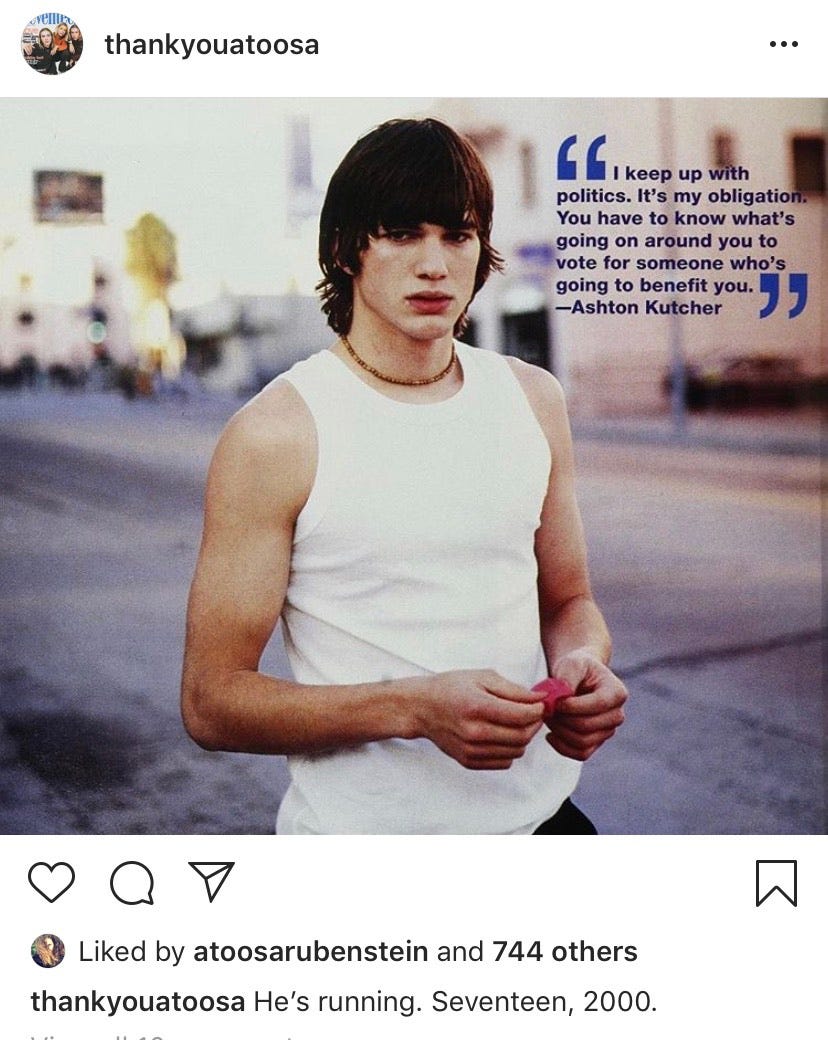
It feels like teen stories are really having a moment in entertainment (“PEN15,” “Eighth Grade”) and online media. What’s your sense of why people are so interested in teen culture right now (or has it always been the case)?
Oh man, I wish I knew! I have a theory that we're always our teen selves. I was a boy crazy, anxious, ambitious 16-year-old who hated my curly hair and as much as I try, I'm not that different now. They say that you never really leave high school, and I wholeheartedly believe that. There's always going to be cliques and hierarchy and mean girls and general bullshit that you have to deal with, no matter how old you are. Working at a teen magazine was exactly like being in high school—everyone's a little catty, highly competitive, and still trying to one-up each other with cooler designer purses.
How do you think the community around teen media in 2019 differs from teen magazines’ readers of the ‘90s- early 2000’s?
I started this Instagram account at the end of the year, shortly after Teen Vogue and Seventeen both ended print and Tavi announced the end of Rookie. I was personally heartbroken—I'm 31, but I still love teen media—but I was also heartbroken for teens. Rookie was really a special place on the internet because it wasn't just about #content, it was about community. It's hard to build that (and it's impossible to authentically replicate that), but I get that it's also hard to monetize that in the current state of media. In many ways, magazines like CosmoGirl and ElleGirl created similar communities, even if they were less connected because Twitter and Instagram didn't exist. I do think there's something invaluable about seeing, and talking to, and reading about girls who you relate to in one way or another; adolescence is extremely lonely and confusing and uncomfortable, and understanding that you're not alone (even if you feel deeply so) is the only way to get through it.
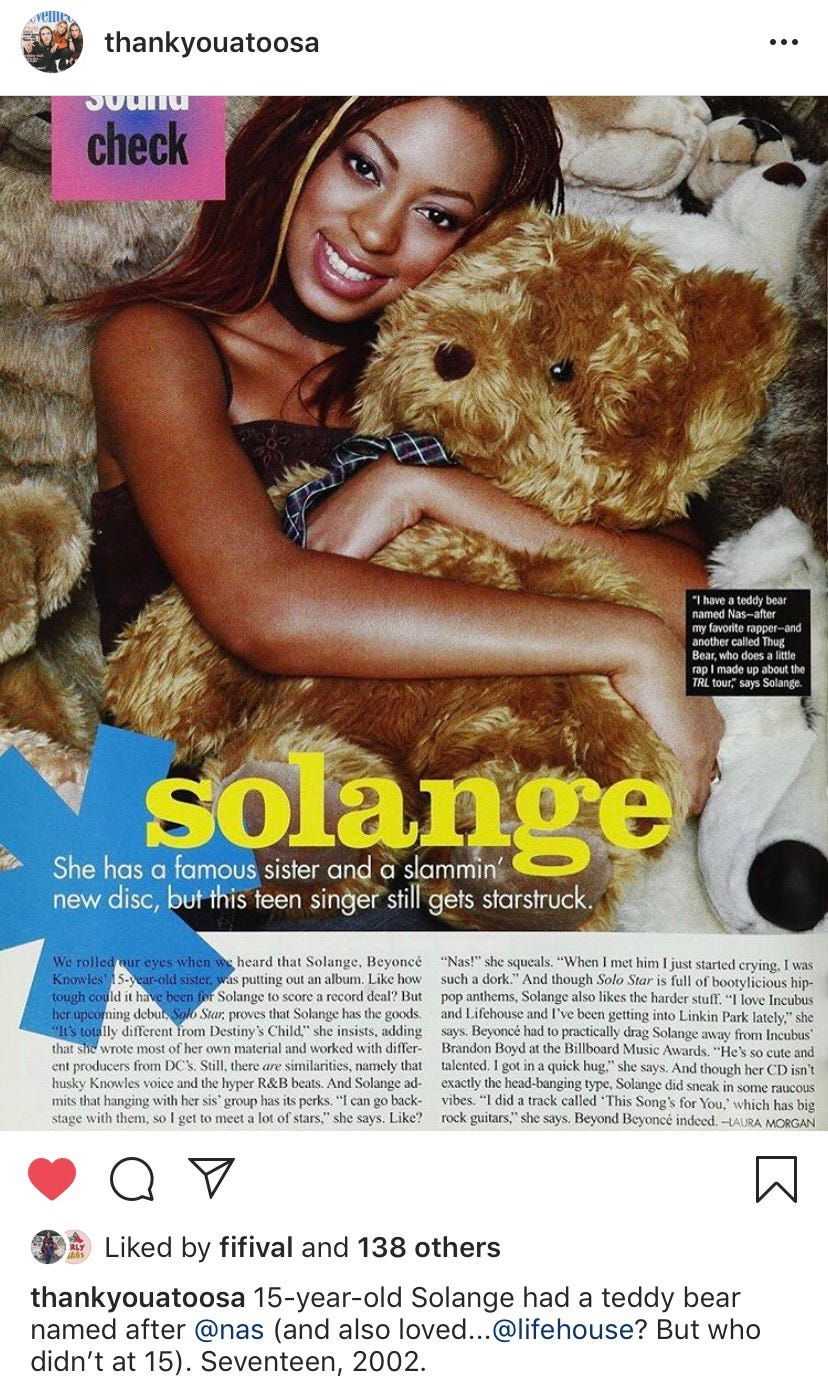
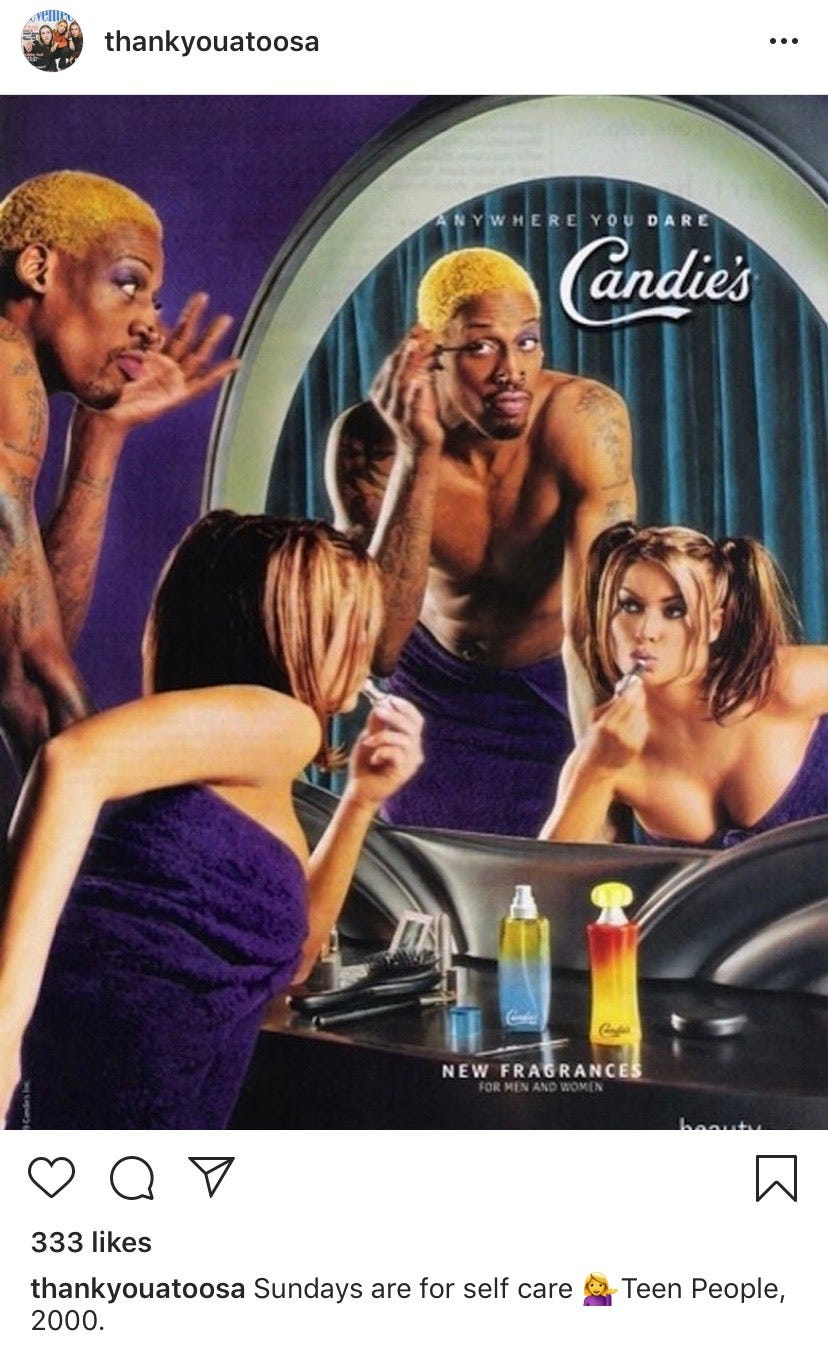
How did ‘90s-early 2000’s media inform your approach to founding Clover Letter, if at all? Has digging through your archives changed your perspective on your business, or other teen media today?
My co-founder, Liza Darwin, and I were both really obsessed with magazines when we were teens, and that was a big influence when we were starting Clover. We were also hugely influenced by gURL.com, one of the most important website for teen girls to ever exist (I highly recommend looking it up on WaybackMachine if you're not familiar). I've always been extremely fascinated with the power of media, especially on teens, who are at such a pivotal moment in their lives.
I can't overstate how important magazines were to me, as someone who grew up in rural Missouri thinking the ultimate designer item was a Coach logo bag. My teen years were largely pre-internet; I had AIM, I visited Hanson.net, but most of the media I consumed was print. Everything I knew about the world came from YM and CosmoGirl and later, from Teen Vogue and ElleGirl.

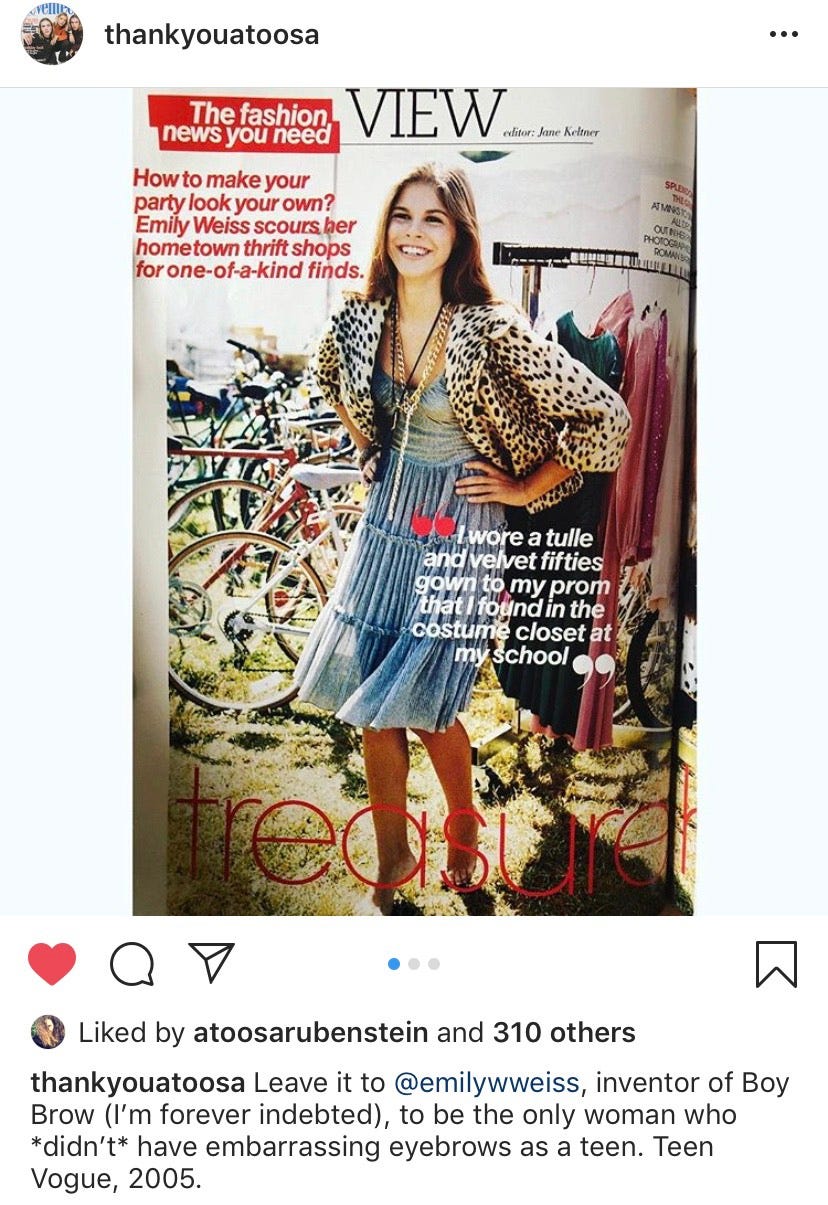
rest in power, Agnès Varda (1928-2019)
I JUST learned that the late, legendary French filmmaker also critiqued women's magazines, per this Gentlewoman profile:

in other women's media news
Glossier Hires Elle.com Editor as First Head of Content (Business of Fashion)
Why We Included A Gender-Inclusive Stock Photo Library (Broadly)
Laura June Topolsky is the new deputy editor of Gay Magazine (Roxane Gay on Twitter)
so here's the tea on Salty (Deez Links)
more from CLIPPED
Thanks for reading! Send notes and scans: clippedmagazines@gmail.com.

